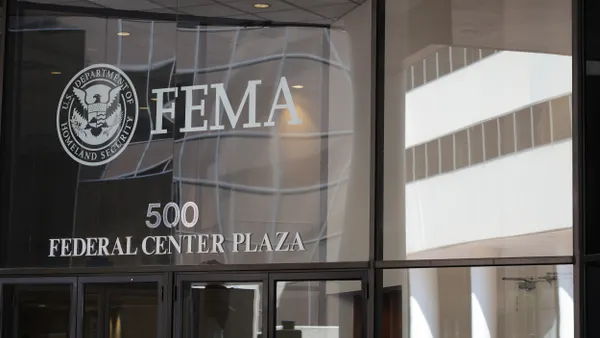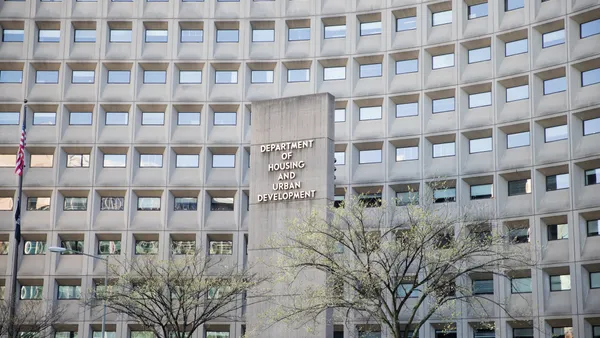Editor's Note: The following is a guest post from Will Evans, director at Performance Networks.
As the first 5G networks gets rolled out around the world, businesses are being spurred on by the success of innovation, creating and adopting new technologies to become smarter than the creation before.
But while 5G is serving as the foundation for the next generation of technology, the network which powers the devices, data and systems to enable smart technology can pose a substantial security risk if exposed to vulnerabilities.
The anatomy of an attack
In March 2018, a massive cyber attack on the City of Atlanta thrust the local government into disarray. A ransomware group called SamSam crippled city employee computers by exploiting bugs and vulnerabilities in their system. They demanded $51,000 in Bitcoin, a cryptocurrency which permits anonymous transactions online. The city refused to pay.
The citywide attack meant that police had to go back to filing handwritten reports and were unable to validate warrants, and Hartsfield-Jackson, the world's busiest airport, had to shut down its Wi-Fi network, leaving flight information and wait times unavailable.
Prior to the attack, the state's government was criticized for its lack of investment in upgrading its IT infrastructure, with some labeling it "woefully disorganized and outdated." It also reportedly received multiple alerts about cyber threats which it didn't do enough to combat.
This lack of attention toward cyber security highlights how dangerous complacency is, causing Atlanta to become a prime target for digital pandemonium.
Insufficient Wi-Fi security measures, weak passwords and poor employee prevention measures can easily make a system vulnerable. Hackers can easily gain access into sensors and devices, which can then be manipulated for their own gain. It's easy to make shortcuts and go for cheaper options for short term gains, but with hackers getting more and more sophisticated, the lack of investment isn't worth the long term risk — especially when entire cities are involved.
It only takes one poor quality system or one small slip up from poorly trained staff to lose thousands of pieces of important data or cripple the entire system. If we are to rely on IT infrastructure and the force of digital to power our cities, the security cannot be compromised.
Unsecured Wi-Fi can allow the movement of data across its airwaves which have no form of encryption or safety. You must take preventative measures as nobody is invulnerable to data attacks, whether it is a coffee shop, hotel lobby or your office desk.
How to stay secure?
- Keep a backup of all information. Ransomware hackers often try to lock companies out of their systems, so if you do get hit, you can stay ahead by storing data in a separate place.
- Don't be negligent. A network is a living entity and needs to be able to adapt to your business and technological changes. That means hackers can also use it to orchestrate it to their own needs if it’s not protected enough. It's not a case of one-size-fits-all, you need the business security network for your business security needs.
- Always use encryption on networks. It will ensure protection of your complete on and offsite network.
- Secure your hardware. Your security service is the guardian angel of your data — treat it as such. There are many solutions available on the market that learn from existing internet activity patterns to automatically uncover current and emerging threats, ransomware, untrusted links and malware. As technology becomes more sophisticated and security threats evolve, critical communication networks are increasingly more important, for government networks and businesses alike.
- Develop a workplace culture of cyber awareness. With more people working from home, remote workers need education on how to stay protected anywhere they go, and employees need to know why it's important they keep their passwords different. Personal devices should also be included in this, to deliver the best education at work to minimize the risks of being hacked.
- Install and regularly update your software on every computer used in your business, and make sure that you use a firewall for your internet connection. Ultimately, make sure that any red flags are addressed with a matter of urgency, and make sure that the Wi-Fi network is secure with regularly changed passwords.
Being smart about security
A combination of different approaches are key to helping you protect your business, detect malware and react as effectively and efficiently as possible. Perhaps you need to outsource your security measures, establish new policies, or re-train your staff, but as smart cities bring businesses and livelihoods together, every company needs to do their bit to protect networks.
Many people see the internet as part of the furniture, something just as important and ubiquitous as hot water. But networks need to be nurtured and proactively protected. It's not enough to trust it to self-diagnose and fend for itself as soon as it is installed.










